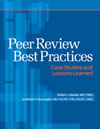All Articles
Accident Investigation & Reconstruction
Jails - Prisons - Correctional Facilities
Accounting
Land Mapping - Surveying - Zoning
Alternative Dispute Resolution (ADR)
Land Use
Appraisal & Valuation
Law Enforcement
Artificial Intelligence (AI) / Machine Learning (ML)
Legal Issues
Attorney Fees
Linguistics
Blockchain Information
Manufacturing
Business Consulting
Marine - Maritime
Business Management
Marketing
Cosmetology: Hair / Makeup
Medicine
Criminology
Mining
Documentation Examination & Analysis
Neuropsychology
Domestic Violence
Nonprofit Organizations
Education & Schools
Obstetrics - Gynecology (OBGYN)
Elevators - Escalator - Automatic Doors
OSHA
Energy - Utilities
Pharmacy & Pharmacology
Enterprise Resource Planning (ERP)
Plants & Trees
Exercise & Fitness
Police Practices & Procedures
Feng Shui
Politics
Finance
Professional Malpractice
Food & Beverage
Recreation & Sports
Foot / Ankle Surgery
Risk Management
Hotels & Hospitality
Taxation
Insurance
Telecommunication
Internet Marketing
Terrorism - Homeland Security
More...

TELECOMMUNICATION-PAGE ARTICLES MAIN PAGE
. Contact Us if you are interested in having your work published on our website and linked to your Profile(s).
All Articles
Alternative Dispute Resolution (ADR)
Human Resources
Anger Management & Related Issues
HVAC - Heating, Ventilation, Air Conditioning
Arms - Guns - Weapons
Injury
Attorney Fees
Insurance
Audio Forensics
International Trade
Business Management
Jails - Prisons - Correctional Facilities
Child Witch Phenomenon
Land Use
Construction
Law Enforcement
Crisis Management
Linguistics
Damages
Mediation
Design
Medicine
Documentation Examination & Analysis
Obstetrics - Gynecology (OBGYN)
Education & Schools
Oil & Gas
Elevators - Escalator - Automatic Doors
Police Practices & Procedures
Employment
Product Liability
Enterprise Resource Planning (ERP)
Professional Malpractice
Eyewitness Testimony
Psychiatry
Fires & Explosions
Public Speaking
Foot / Ankle Surgery
Recreation & Sports
Forensic Analysis
Speech-Language Pathology
Forensic Psychiatry
Spirituality
Forgery & Fraud
Terrorism - Homeland Security
Healthcare
Toxicology
Hotels & Hospitality
Underwriting
Human Factors
Warnings & Labels
More...
Featured Articles
There are no active articles here at this time. Please use the search bar, try another category, or contact us if you would like to contribute an article.
This Article is unavailable. Contact Us
Search articles by title, description, author etc.
Sort Featured Articles
Featured resources
Marketing for the Legal Nurse Consultant
by Betty Joos, John Joos
Peer Review Best Practices: Case...
by Jon Burroughs, MD, et al
November Days
by Bonnie M. Ruth, PhD, CRC, CCM
Follow us










